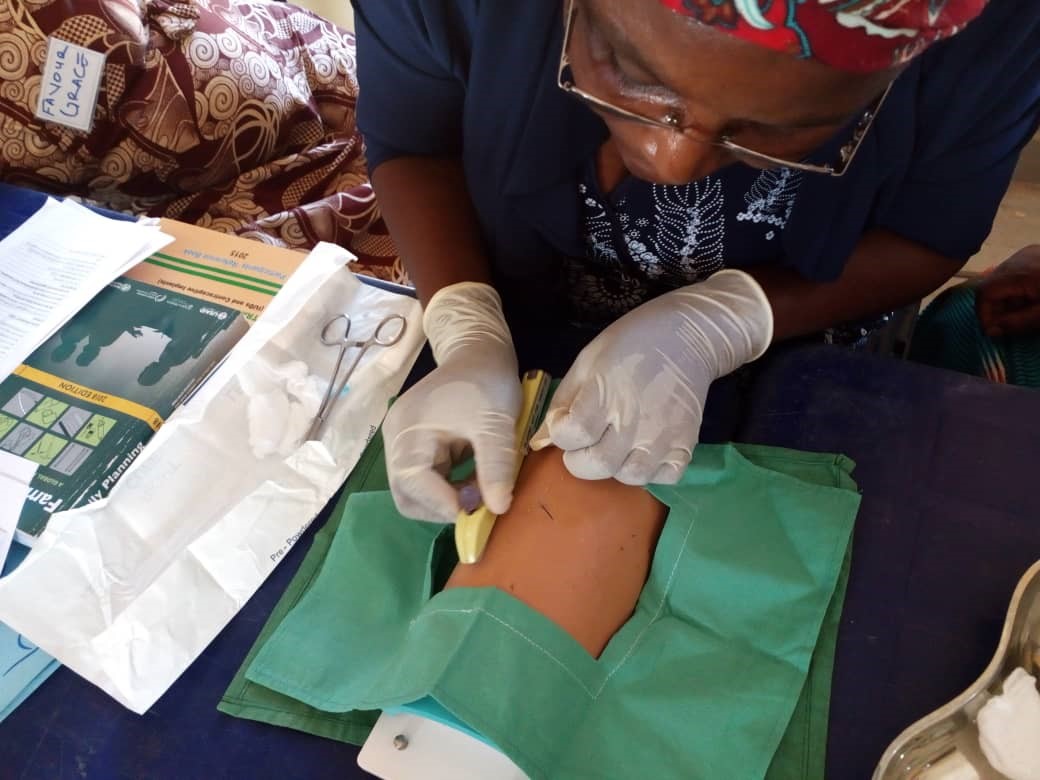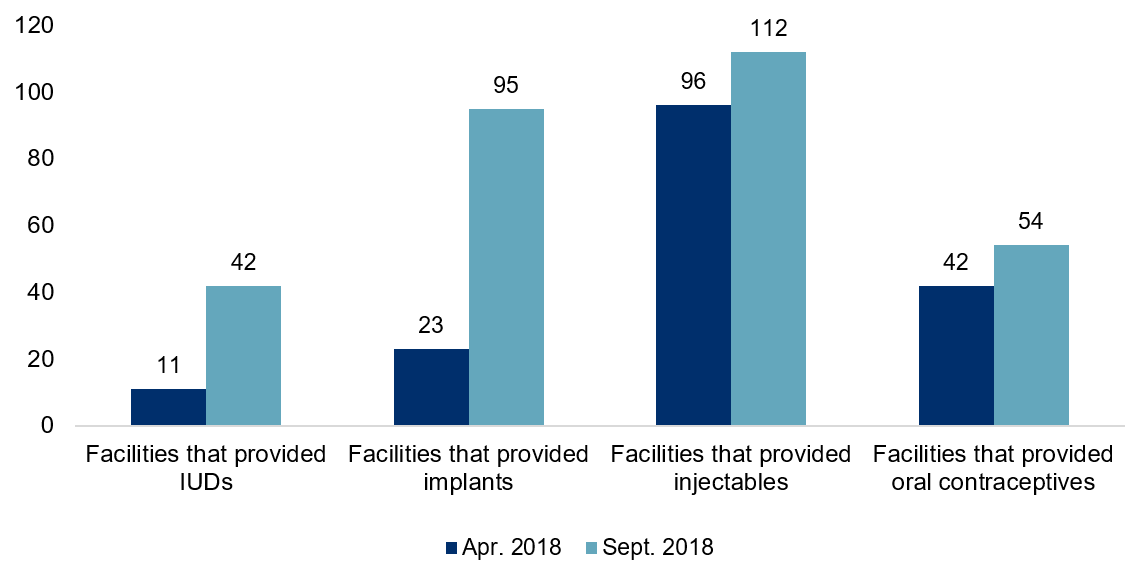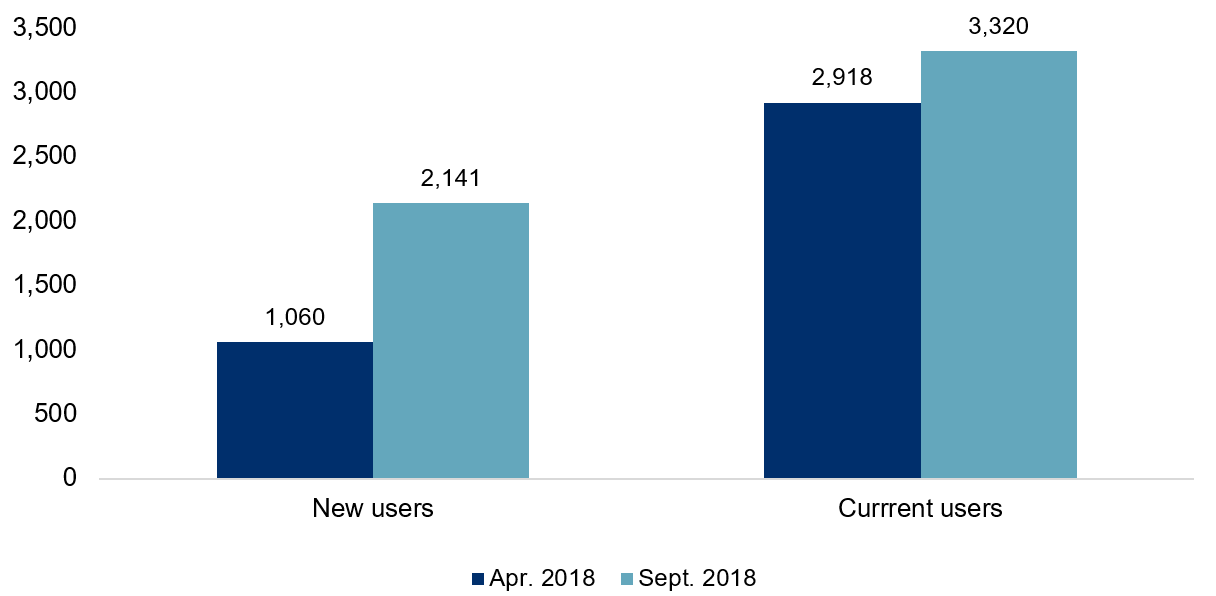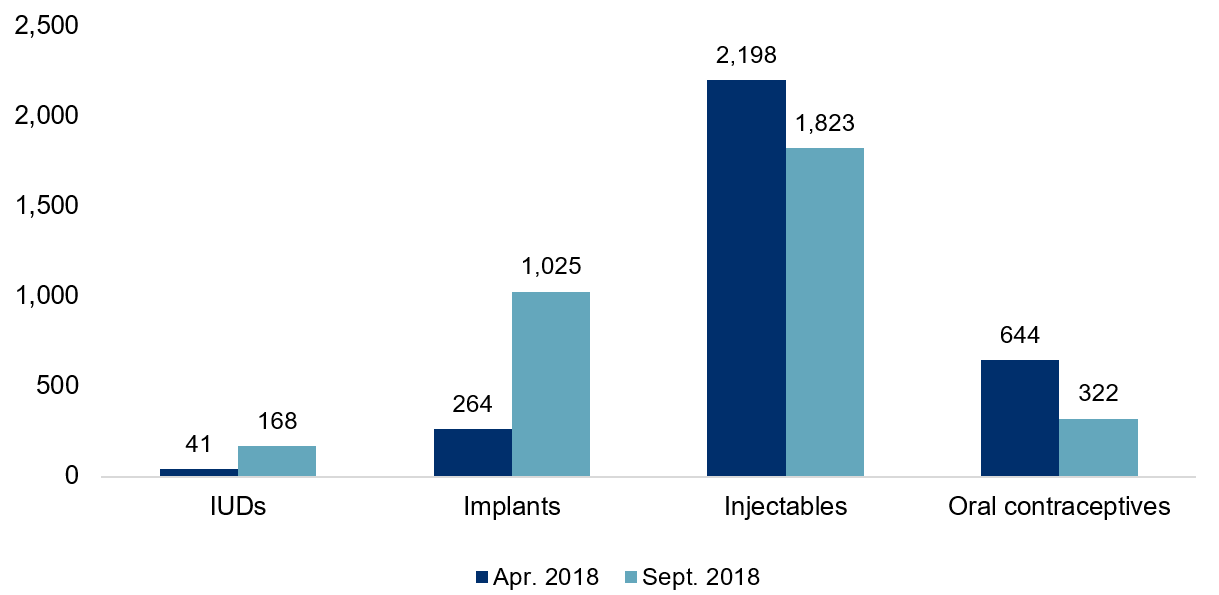Provider training leads to greater number of family planning users in Nigeria

After training 151 community health extension workers in Federal Capital Territory and Plateau State in family planning clinical skills, SHOPS Plus saw an increase in the number of facilities that offered family planning methods, as well as the number of long-acting reversible family planning methods delivered—specifically IUDs and implants.
In early 2018, SHOPS Plus enhanced the national provider training curriculum to address important factors associated with family planning service delivery, such as gender dynamics and provider bias.
Community health extension workers from 151 public facilities participated in a two-week clinical skills training session starting in May 2018. The first week focused on instruction using a participatory style of teaching, while the second week allowed participants to get hands-on experience at a nearby health facility.
As part of the training session, providers received starter packs of service delivery instruments (IUD insertion and removal kits and infection prevention kits), printed job aids, and forms to report family planning service data from their facilities to the National Health Management Information System. In the months following the training sessions, SHOPS Plus provided three follow-up visits to each provider to reinforce new skills.
The project surveyed the participants in April 2018 before the training started and again in September. The responses showed an increase in the number of facilities that offered family planning products and services, the number of family planning users, and the number of long-acting reversible family planning methods delivered.
More facilities provided family planning methods

Facilities saw an increase in family planning users

Providers delivered more long-acting reversible contraceptive methods

All providers who received clinical skills training also learned how to report service delivery data into the national health management information system. After this training in September 2018, more than 85 percent of the facilities with a trained staff member reported data through the national health management information system, up from 74 percent in April.
SHOPS Plus expanded its training program to include private providers. The project continues to provide three follow-up visits to each trained provider. In October 2018, SHOPS Plus trained family planning coordinators and coaches to conduct these visits. The coordinators are from the local government area or local council and the coaches are retired nurse-midwives and other providers who have experience in family planning service provision.
As of December 2018, SHOPS Plus has trained a total of 350 public and private providers in family planning clinical skills and will continue training providers into 2019.
Read stories from providers who participated in the clinical skills training program.